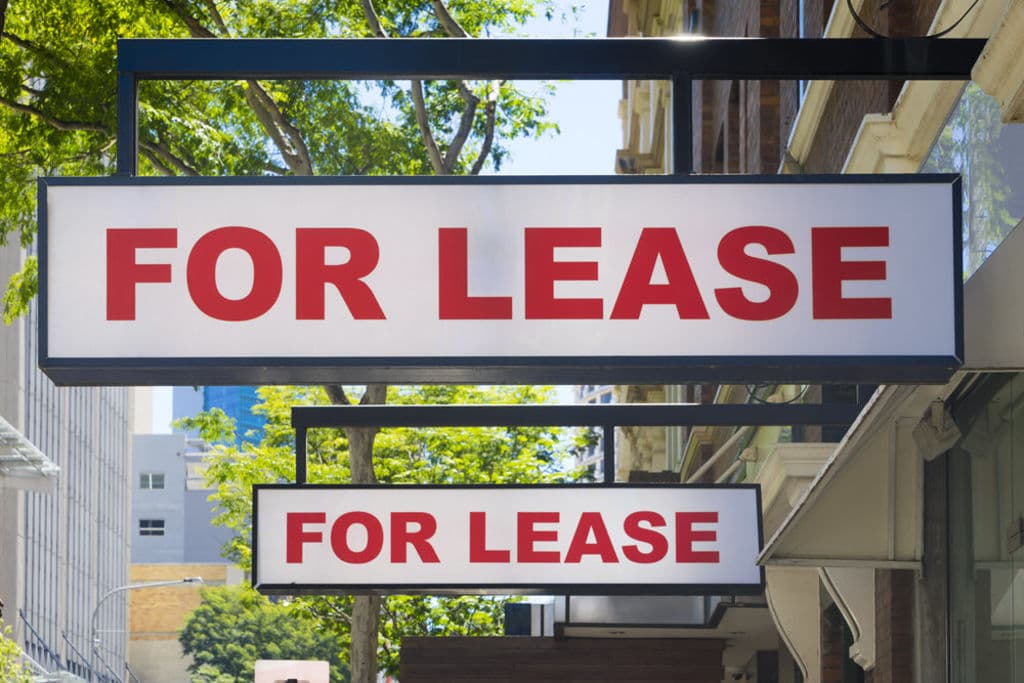
How to finance a commercial property investment
Commercial properties are favoured by some investors as they typically generate higher returns than residential properties, along with having other benefits such as longer leases.
But many others shy away from investing in commercial property because of its complexity and higher risk – especially when looking at how to finance the asset.
Financing a commercial property purchase can feel like a daunting process for both new and sophisticated investors, and it is easy to be overwhelmed.
Here is a guide that answers some of the key questions facing commercial property investors when applying for a loan.
What will I need to show a bank when applying for a commercial property loan?
Paul Cleary, director of Melbourne-based specialist broker Synergy Commercial Property Finance, said that it was essential to undertake extensive due diligence on the property and the underlying finance requirements before negotiating any terms with the vendor.
“The key consideration for any lender is the property’s ability to generate income not only today but [also] in the future, so basically a property’s value today is the sum value of its future cashflow,” said Cleary.

Basic things you need to have approved to get a commercial property loan are:
- Details of any existing lease, including the length of the lease agreement. Commercial leases tend to be three to five years long and may even have lease extension options of a similar length.
- If the property does not have a tenant, you need to demonstrate how you will afford to maintain the property and make repayments in lieu of that tenant’s income.
- Your income details, including the rental income from the property, net of outgoings such as land tax and non-recoverable expenses.
- Your deposit and equity sourced from other properties, if any.
- Details of the property itself, including the asset class (such as office, warehouse or shop), location and valuation.
Cleary noted that investors would need to show details of their financial situation in the past two years and their trust deed if their company was set up using a trust business structure.
How much can you borrow when buying a commercial property?
Commercial investors are slightly more limited in their leverage capacity than residential investors, Cleary said.

“Whereas residential property investors have the capacity to leverage to 95 per cent of the property’s value, most commercial lenders require commercial borrowers to have a minimum contribution of 20 to 30 per cent plus stamp duty and acquisition costs when applying for a commercial loan,” he said.
“In other words, the lender will consider lending up to 70 to 80 per cent of the property’s value.”
Cleary also noted that the specific amount an investor could borrow often depended on the property price.
“For sub-$1 million acquisitions, this can be up to 80 per cent of the purchase price or valuation, but for anything over $1 million, this is normally set at 65 to 75 per cent of the purchase price and is usually restricted or set by the servicing calculation set by the bank,” he said.
Buyers of commercial property also cannot access lender’s mortgage insurance, so it is essential to have a sufficient deposit or equity to qualify for the loan.
However, you are likely to receive approval if you buy a traditional commercial property (such as an office) with a stable tenant who will remain in the space for several years.
Mortgage brokers can recommend lenders according to your situation.
What to consider before applying for a loan
- A mortgage broker who specialises in commercial property loans can tell you precisely what you need to know before making an application.
- Mortgage brokers will also have the right relationships with key lenders and can recommend lenders according to your situation, as they will know the ins and outs of each lender’s different criteria and loan options.
- A specialist broker will also be able to help you negotiate the terms of the loan, especially on bigger loans.
- Because commercial property loans are so complex, it is also essential to have legal and financial experts on your side. They can undertake appropriate due diligence and assess the terms of the contracts and lease agreements.
- Clauses that could affect the underlying property value include termination or break clauses that allow the tenant to end the lease earlier than agreed.
“Given that the process differs substantially from a traditional residential mortgage, it is always best to speak to a broker first and foremost to confirm indicative rates and terms and leverage,” Cleary said, adding this should be done when first looking at a property.
“Unless you are a very sophisticated borrower with extensive experience with commercial property, there is far too much risk involved to proceed with this type of loan without considering all the consequences and potential pitfalls,” he said.
“Gather a team of experts together, such as your accountant, solicitor, an experienced commercial mortgage broker experienced in commercial loan deals, and a financial advisor before making any decisions.”

How is commercial property lending different to residential?
As commercial properties are more susceptible to economic slumps, lenders generally consider them to be higher-risk investments than residential properties.
While lenders for residential property loans are fairly transparent with their interest rates and often have carded rates that are publicly advertised, this is not the case for commercial property loans, for which rates are not always publicised.
In fact, terms on the commercial property loan can almost always be negotiated.
“Commercial loans are more complex and are generally priced for risk, which means that the more risk that the underlying asset, tenant or borrower presents to the lender, the higher your interest rate will be,” Cleary said.
“Several factors will determine risk, such as the location of the property, the leverage of the debt being proposed, the tenancy profile and the weighted average lease expiry [WALE] of the sum total of tenants – and the demand for the type of property. Often, the more specialised the property, the lower the appeal to the broader market and the lower the demand.”
For instance, assets including offices and warehouses are seen as “standard commercial properties” because they appeal to a larger pool of tenants, while spaces built for a specific purpose, such as hotels and service stations, are seen as riskier because potential tenants and buyers are limited to businesses in that sector.
Commercial property loans also have much shorter loan terms of between three and five years (up to 15 years in some cases), compared with the 30-year terms of residential property loans.
Despite all the differences, buying commercial and residential property is virtually the same in one aspect: the settlement process.

Common misconceptions and pitfalls surrounding commercial property loans
Cleary said that since the pandemic, commercial property interest rates have differed completely from residential rates. However, this has changed remarkably over the past three to four years.
“At present, you are able to achieve a rate of, say, 6.5 to 7 per cent for an interest-only [residential property] investment loan at 80 per cent [loan-to-value ratio]. However, in commercial loan-land, this would be a rate of 6.5 to 9 per cent with gearing of 65-80 per cent,” he said.
Cleary said common misconceptions concern the loan set-up fees, which are usually higher than residential property loans:
- Commercial valuations, which are generally higher than residential valuations, due to their complexity. They also need to be paid upfront.
- Lender legal costs, which cover the lender’s costs of preparing legal documents and services.
- Lender application fees, which are negotiated and tailored to each deal. As a guide, the fees can range from 0.5 per cent to more than 1 per cent of the loan amount.
“It’s always best to consult a professional who has expertise with commercial property and commercial loans as these differ immensely from residential and could result in a costly error if you obtain incorrect advice,” Cleary said.
Another area to be wary of is vacant commercial properties.
Cleary said those buying these properties should aim to have a tenant lined up as soon as possible unless they plan to owner-occupy or can de-risk the asset with a pre-lease at or shortly after settlement.
Misconceptions and pitfalls check-list
- Watch for the difference between residential and commercial interest rates.
- Extra costs of commercial loan set-up fees.
- Vacant possession.










